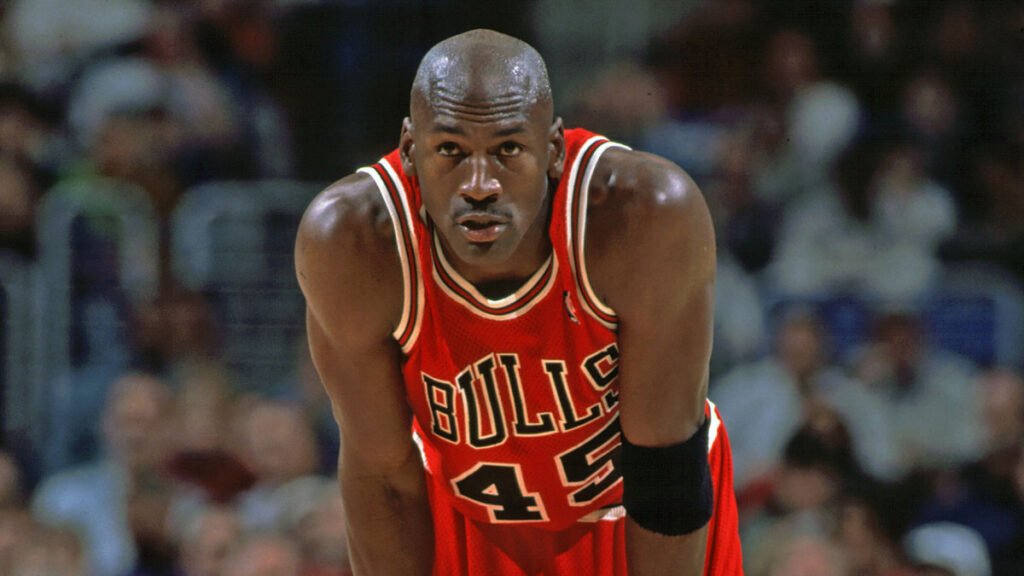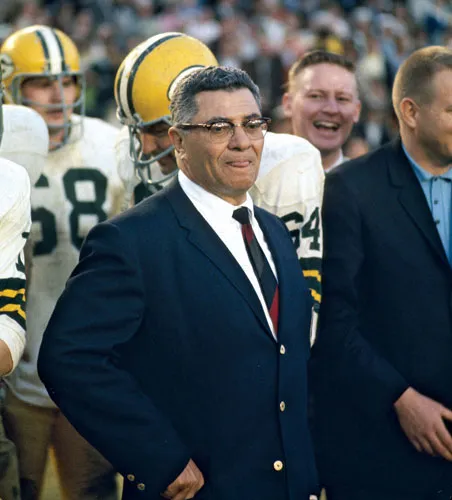Encouraging Grit and Resilience in Youth Sports
Building Mental Toughness: Practical Tips to Foster Endurance and Strength in Young Competitors
Learn how fostering a mindset of endurance and resilience can transform young competitors into persistent achievers.
– Coach Johnny
Introduction
Encouraging grit and resilience is pivotal in sports.
These psychological traits define an athlete’s success, often overshadowing physical prowess.
The early development of these qualities can set the foundation for young athletes’ athletic careers and personal growth.
This blog post delves into practical strategies that coaches, parents, and mentors can utilize to cultivate perseverance and resilience among youth in sports.
By focusing on these traits, we not only boost their capabilities in the field but also prepare them to handle life’s challenges with confidence, determination, and strength.
We will explore various methods to instill these essential characteristics, starting with setting the right challenges.
Additionally, by providing the necessary support and encouragement, we ensure that young athletes learn to embrace and overcome adversity.
This guidance aims to enrich their sports experience and arm them with critical life skills beyond athletic endeavors.

“I’ve missed more than 9,000 shots in my career. I’ve lost almost 300 games. Twenty-six times, I’ve been trusted to take the game-winning shot and missed. I’ve failed over and over and over again in my life. And that is why I succeed.”
– Michael Jordan’s quote exemplifies grit and resilience by showing that even the greatest failures can lead to success if one persists and learns from their mistakes.
Understanding Grit and Resilience
Definition and Importance
Encouraging grit and resilience are crucial psychological traits that significantly influence an athlete’s potential and performance.
Grit is defined as the passionate pursuit and perseverance toward long-term objectives.
It embodies an athlete’s enduring commitment to their goals, regardless of obstacles or failures.
Resilience, conversely, refers to the capacity to recover quickly from difficulties.
It allows athletes to bounce back from setbacks, maintaining their focus and motivation.
These traits create a powerful combination that fuels athletes to continually strive for improvement and excellence despite facing challenges.
Benefits in Sports
Long-term Development: Athletes endowed with grit demonstrate a steadfast dedication to their training regimes over the years, crucial for mastering skills and achieving sustained success in sports.
Handling Pressure: Resilient athletes excel in managing stress and anxiety, especially during critical competition moments.
Their ability to stay calm and composed under pressure significantly enhances their performance.
Learning from Failure: These athletes possess a unique perspective on setbacks, viewing them as valuable learning opportunities rather than discouraging obstacles.
This mindset is pivotal for growth and adaptation in the highly competitive world of sports.
Psychological Perspective
Research in psychology suggests that while some aspects of encouraging grit and resilience may be innate, these traits can be cultivated and strengthened over time.
This is particularly encouraging for young athletes, as it indicates that they can develop these qualities through deliberate practice and guidance.
Coaches and mentors play a vital role in this developmental process by creating environments that challenge athletes while providing the support needed to foster these traits.
Encouraging reflection on successes and failures, setting incremental goals, and emphasizing a growth mindset can all help young athletes enhance their grit and resilience.
This prepares them for the demands of competitive sports and equips them with valuable skills for handling life’s various challenges.
“Success is no accident. It is hard work, perseverance, learning, studying, sacrifice, and most of all, love of what you are doing or learning to do.”
– Pele emphasizes that success in sports comes from perseverance and passion, fundamental components of grit.

Strategies to Cultivate Grit and Resilience
Creating a Supportive Environment
Role of Coaches and Parents
The environment in which young athletes train plays a crucial role in their development.
Coaches and parents can significantly influence this space, making it a nurturing ground for fostering resilience and perseverance.
Positive Reinforcement: Celebrating even the small achievements of athletes is essential.
This practice helps to build their confidence and motivation.
When athletes see their efforts recognized, they are more likely to be enthusiastic about continuing their sports journey.
Constructive Feedback: Feedback should focus on outcomes, effort, and improvement.
This approach encourages athletes to keep improving and learning rather than feeling discouraged by results.
Effective feedback involves specific, actionable advice that athletes can use to enhance their skills and strategies.
Emotional Support: Coaches and parents must provide consistent emotional support through successes and failures.
Being a reliable source of comfort and encouragement helps athletes handle the ups and downs of sports, thereby reinforcing their mental and emotional resilience.
Training Methods
Challenge Them: Regularly setting challenging yet achievable goals is vital for pushing athletes out of their comfort zones.
These challenges should be tailored to stretch their abilities without overwhelming them, thus facilitating continuous growth and learning.
Encourage Risk-Taking: Allowing athletes to engage in new and challenging activities where failure is a possibility creates a rich learning environment.
This approach feeds and encourages grit and resilience.
Such experiences are invaluable, as they teach athletes to navigate and learn from setbacks, contributing to their overall growth and development.
This method fosters a mindset where taking calculated risks is seen not as a potential for failure but as an opportunity for significant personal and athletic development.
These strategies can create a supportive environment that enhances athletic performance and develops lifelong skills in young athletes.

“The real glory is being knocked to your knees and then coming back. That’s real glory.”
– Lombardi’s words capture the essence of grit and resilience—rising after a fall and finding success through continued effort.
Teaching Mental Skills
Goal Setting
Effective goal setting is a critical mental skill that coaches can teach to help athletes achieve both short-term progress and long-term success.
Using the SMART goals framework is an excellent way to guide athletes.
SMART goals are Specific, Measurable, Achievable, Relevant, and Time-bound, ensuring that objectives are clear and reachable within a reasonable timeframe.
Encouraging athletes to set both short-term and long-term goals is vital.
Short-term goals provide immediate challenges and quick wins, boosting motivation and confidence.
However, long-term goals help them visualize their ultimate objectives in the sport, maintaining their focus and perseverance over time.
Coping Mechanisms
Stress Management Techniques: Introducing athletes to effective stress management techniques is crucial for their mental well-being and performance under pressure.
Techniques such as deep breathing, visualization, and mindfulness can help athletes manage anxiety before competitions or during high-pressure situations.
These tools improve focus and enhance overall emotional resilience, allowing athletes to remain calm and collected.
Problem-Solving Skills: Equipping athletes with problem-solving skills empowers them to handle various challenges independently.
This involves teaching them how to break down a problem, assess options, and decide on the best action.
By developing these skills, athletes become more self-reliant and adaptable, capable of overcoming obstacles on and off the field.
By integrating these mental skills into training, coaches can provide athletes with a robust toolkit that not only enhances their ability to set and achieve goals but also manage stress effectively and solve problems creatively.
This holistic approach improves their performance and prepares them for the mental demands of competitive sports and life challenges.
Developing a Growth Mindset
Developing a growth mindset is about seeing beyond the immediate hurdles and recognizing potential in every setback.
Embracing this perspective involves a deep understanding of failure not as a defeat, but as a vital component of growth.
How do we transform our perception to view failures as natural and essential stepping stones?
It begins with reframing these experiences as opportunities for learning.
When we stumble, it’s an invitation to assess, adjust, and advance with renewed insight.
Further enhancing this mindset is the feedback loop.
Encouraging individuals to perceive positive or critical feedback as a valuable tool is crucial.
Feedback mirrors our efforts and strategies, revealing areas that need refinement and confirming practices that show promise.
It’s about cultivating an environment where feedback is not feared but welcomed with an open mind and heart.
In addition to understanding failure and feedback, praising the process rather than the outcome is vital.
It’s essential to recognize and reinforce the value of effort, strategy, and perseverance, especially when encouraging grit and resilience
Praise directed at these elements rather than innate talent or immediate results fosters resilience and a true commitment to continuous improvement.
Sharing stories of role models, especially athletes who have determinedly navigated through difficulties, can be a powerful motivation.
These narratives highlight that success is often the result of persistent effort and adaptability, thereby inspiring others to persevere through their challenges.
Focusing on these principles makes developing a growth mindset a transformative journey that not only encourages embracing challenges but also views them as opportunities to grow and excel.
“I’d rather regret the risks that didn’t work out than the chances I didn’t take at all.”
– Simone Biles advocates for courage and taking chances, which are crucial for pushing limits and fostering grit and resilience.

Implementing the Strategies
Implementing strategies to develop grit and resilience among young athletes demands consistency and patience.
Coaches and parents play pivotal roles in this process, necessitating a regular review of their approaches to ensure they effectively foster these qualities.
It’s not merely about applying a one-size-fits-all method but rather tailoring the strategies to meet each athlete’s unique needs and responses.
Each young person brings their own experiences and attitudes to the table, which means that how they react to challenges and absorb feedback can vastly differ.
It’s essential that the methods used are adaptable and considerate of individual differences to truly embed these values.
This customization makes the learning process more relevant and impactful for each athlete, enhancing their ability to integrate these lessons into their daily practices and competitions.
By thoughtfully adjusting approaches, coaches and parents can more effectively guide young athletes towards encouraging grit and resilience and persisting through adversity.

“The most important thing is to try and inspire people so that they can be great at whatever they want to do.”
– Kobe Bryant’s focus on inspiration speaks to the motivational aspect of resilience, encouraging perseverance through challenges.
Conclusion
Developing grit and resilience in young athletes goes beyond merely enhancing their sports performance; it prepares them for the myriad challenges that life invariably presents.
By focusing on these crucial psychological traits, we equip young athletes with the necessary tools to persevere through adversity and extract valuable lessons from their experiences.
This foundation enables them to chase their long-term goals with unwavering passion and determination.
While not exhaustive, the strategies outlined offer a robust framework for anyone committed to supporting the mental and emotional growth of young athletes.
These methods include encouraging a growth mindset, incorporating constructive feedback, and emphasizing the importance of effort over outcomes.
By adopting these approaches, coaches, parents, and mentors can significantly influence an athlete’s resilience and capacity to navigate both sporting and life challenges effectively.
This comprehensive development is essential for fostering successful athletes and thriving individuals.
Call to Action
Join Coach Johnny in cultivating a sportsmanship, respect, and integrity culture in youth sports.
Are you ready to make a real impact on the young athletes in your life?
Start today by implementing these proven strategies for encouraging grit and resilience.
Remember, the journey to developing these qualities is not just about improving athletic performance—it’s about preparing them for life’s many challenges.
Encourage a growth mindset, embrace constructive feedback, and celebrate the effort, not just the outcomes.
Share your experiences and the lessons learned along the way.
Let’s commit to nurturing not just skilled athletes but resilient individuals.
Join us in this vital mission—because every young athlete deserves the tools to succeed in sports and thrive in all areas of life.
Act now, for their future is shaped by the guidance we provide today.
Join the JK Tribe
Coach Johnny is a youth sports coach with over 30 years of experience. He continues to coach various sports in various age groups (pre-high school) for all genders. He is also the founder of Johnny’s Kidz and the JK Tribe. If you would like to support his journey and become a Tribe member, reach out and Buy Coach A Cup of Coffee.
And remember, The Game Belongs to Them!

